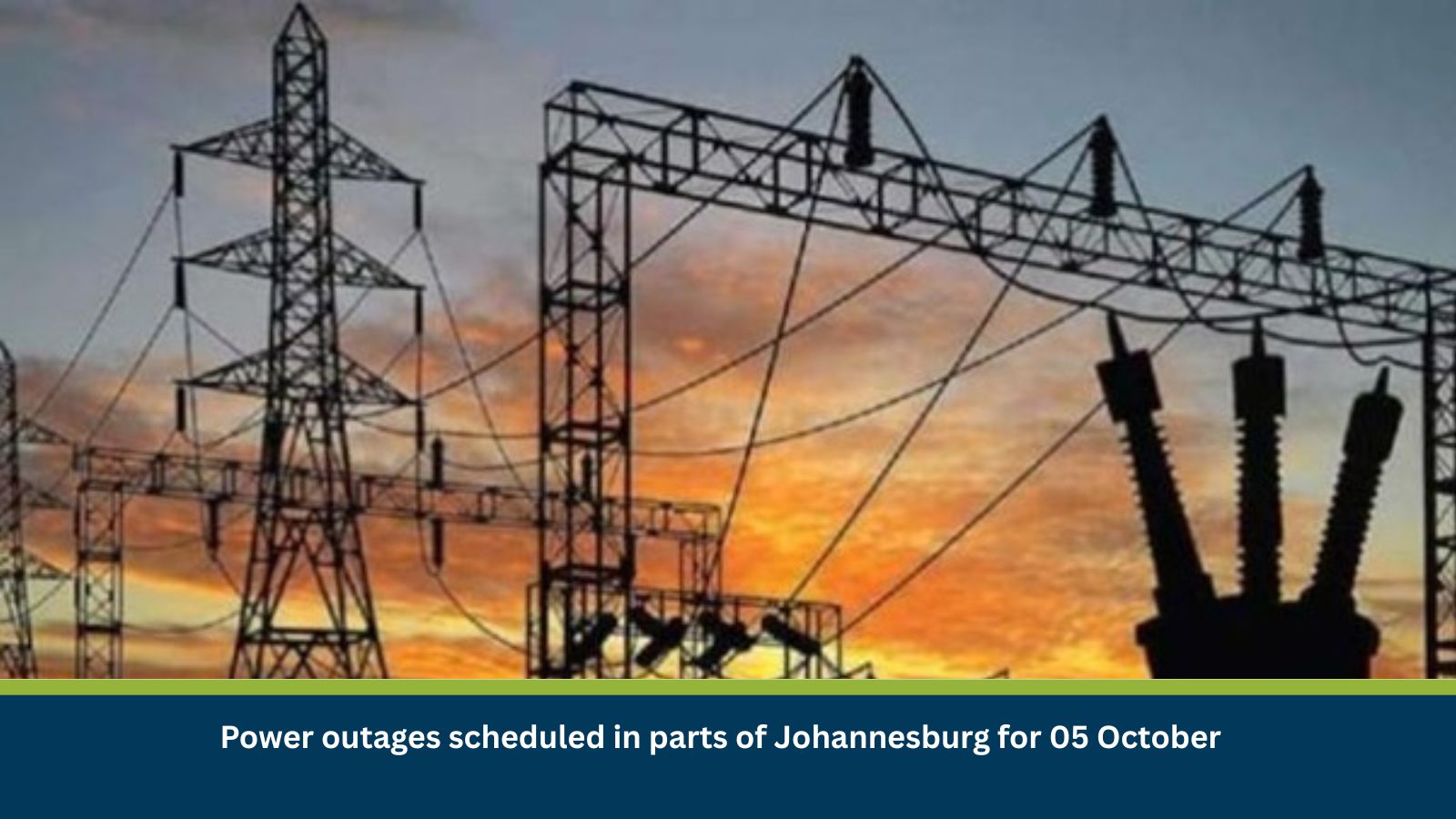What is Risk Analysis in the Context of Critical Infrastructure Events
Critical infrastructure risk analysis evaluates how planned or unplanned utility interruptions affect safety, operations, mobility, and assets. In Johannesburg, scheduled maintenance outages are recurrent; while controlled, they strain business continuity, require generators/UPS, and elevate exposure across security, transport, and ICT dependencies.
Executive Summary
- Date of Incident: 05 October 2025
- Location: Johannesburg, Gauteng, South Africa
- Risk Category: Critical Infrastructure
- Severity Score: 3/5
- Confidence Level: 90%
A scheduled 8-hour outage is set for Sunday, with a likely 6–9 hour window. Primary risks are operational disruption, traffic signal failures, and intermittent connectivity. Catastrophic impacts are unlikely; minor restoration delays are possible. Preparedness around backup power and communications will limit business impact.
Current Updates
City Power has announced an 8-hour maintenance outage on 05 October affecting multiple suburbs. Specific zones are communicated by the utility; residents and businesses should plan for service interruption and staged restoration.
Known Hotspots and Sensitive Areas
- High impact: Hospitals (Charlotte Maxeke, Garden City), Johannesburg CBD; commercial hubs (Sandton, Rosebank) reliant on continuous power.
- Medium impact: Mixed residential/retail suburbs within the named outage areas; police stations and clinics on generator backup.
- Low impact: Areas outside utility work zones; facilities with resilient on-site power. Recurrence patterns align with planned Sunday maintenance windows.
Impact on Transportation and Services
Expect severe congestion where traffic lights fail on arterial routes (M1, N1 and feeder roads). Rea Vaya, Metrorail and taxi operations may face knock-on delays if depots or signalling are affected. Business services, point-of-sale, cold chains and cloud access may degrade as UPS and cellular sites exhaust battery reserves.
Recommended Actions
- Power & ICT: Test generators/UPS; stage fuel; protect servers and networking; verify data backups and VPN access.
- People & operations: Enable remote/flexible hours; issue device-charging and safety guidance; pre-cool/freezer management; reschedule time-critical work.
- Security: Confirm manual overrides for access control; add patrols; ensure alarms/CCTV have UPS and GSM paths.
- Stakeholders: Notify clients of possible delays; publish alternate contact numbers; route calls to unaffected teams; set status updates at 10:00, 14:00, 18:00.
Multidimensional Impact
Operational disruption will be most visible in retail, hospitality and offices without robust backup; traffic risks rise at uncontrolled intersections; mobile/data services may degrade as batteries drain; social frustration can increase with recurrent outages; environmental impacts stem from diesel generator use and potential food spoilage. Overall effects remain localized and time-bound, with restoration-phase equipment trips a residual risk.
Emergency Contacts
- Police: 10111
- Fire/Ambulance: 10177
- City Power Johannesburg: 0860 562 874
- City of Johannesburg: 0860 562 874
Final Thoughts
The trajectory indicates a controlled, single-day power outage with restoration expected by evening, though localized extensions and re-energization faults may occur during recovery. Businesses should prioritize backup power arrangements, safeguard people and assets, and ensure timely internal and external communication to minimize disruption. The strategic focus remains on maintaining operational resilience and business continuity through the use of early-warning systems and established continuity playbooks, effectively mitigating the impact of the Johannesburg power outage. Stay ahead of operational risks with real-time alerts, scenario modeling, and expert advisories with datasurfr’s Predict. Start your 14-day free trial of Datasurfr’s Risk Intelligence Platform today.






